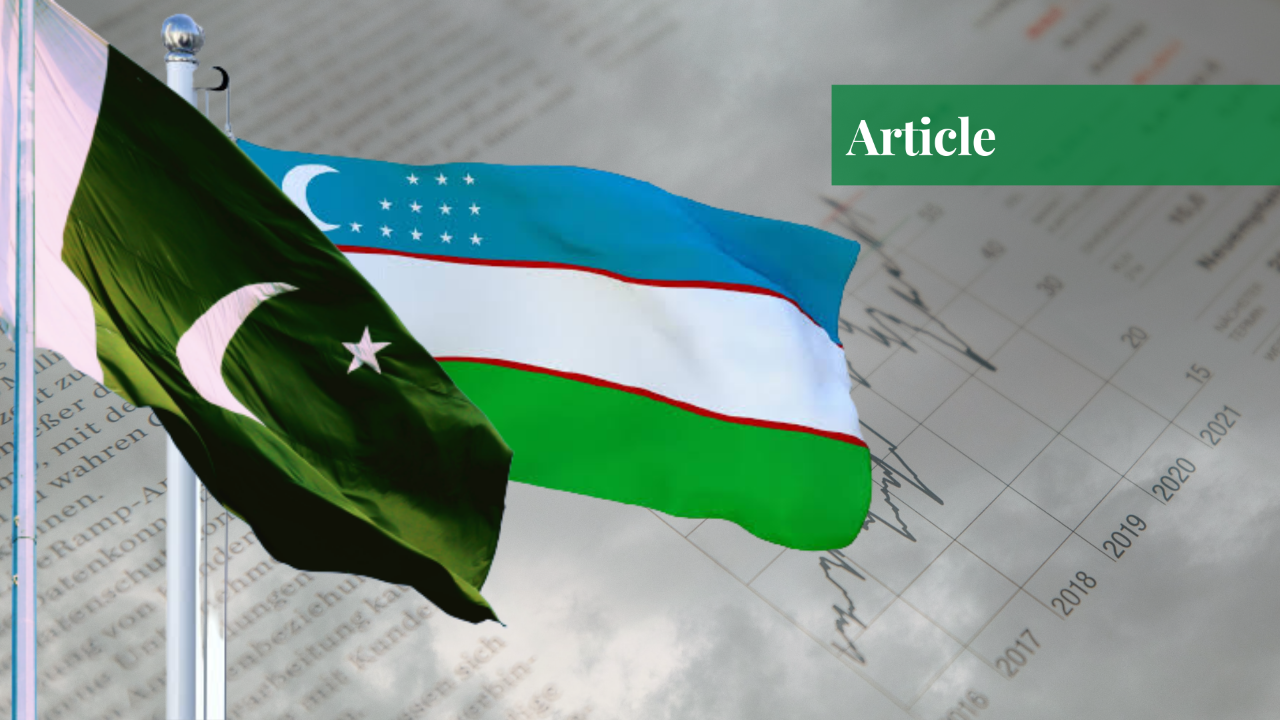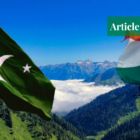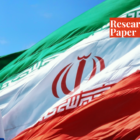Ms Mahnoor Nafees is a student of BS International Relations at the University of Management and Technology.
Bukhara and Samarkand, the ancient lands known for their historic affiliations with Islam and the major contributions they made in the fields of science and philosophy, today constitute the area known as Uzbekistan.
Uzbekistan, a double landlocked state in Central Asia has witnessed many political turmoils and bloody wars throughout its history but has still produced many famous religious scholars and scientists; Imam Bukhari, Imam Tirmizi, Bu Ali Sina, Al Biruni, and Al-Khwarizmi, name a few.
With a rich and impactful history on its side, the state is once again on the road to stabilization under the presidency of Shavkat Mirziyovev. Uzbekistan houses a population of around 34 million people of which the majority are Sunni Muslims. Although the state has different ethnicities including Russians, Kazakhs, and others, the dominant religion is Islam.
Economically, Uzbekistan is heavily dependent on its cotton industry and is the fifth largest exporter of cotton worldwide. Till 2016, Uzbekistan continued the Russian legacy of a command economy, but current President Shavkat Mirziyovev is inclined towards reforming the economic system to make it more market-oriented.
Huge reserves of natural and energy-rich resources make Uzbekistan and other central Asian states more attractive for regional as well as global powers.
Geo-Political Importance of Central Asia
Due to its pivotal position, the Central Asian region is of utmost importance to the world powers. The geostrategic location of the region allows it to bridge the gap between the East and the West, specifically between eastern communist states Russia and China and the Western capitalist world.
Moreover, the region also provides a connection and transit route to the energy-rich Middle East and Arabian Sea. Its close proximity to the South Asian and South-East Asian states further makes its role significant in regional and geopolitical domains. It is said that controlling Central Asia is imperative for any world power to consolidate its global strength and position.
In addition, China’s Belt and Road Initiative (BRI) has garnered further attention for the region. Two routes of the new silk road pass through Uzbekistan, connecting it to China, Iran, Turkey, West Asia, and India. China is also trying to initiate a railway that would connect China with Uzbekistan and Kyrgyzstan.
Furthermore, due to its historic ties with Russia, Uzbekistan is majorly inclined towards Russia for political and economic benefits. This inclination of energy-rich Central Asian states towards two major communist powers drives the western power’s interests in the region. The geopolitical and geostrategic importance of the region accounts for the great game between Russia and Britain in the 19th century.
Pakistan-Uzbekistan Relations in the Backdrop of Recent Advancements
Pakistan was one of the first countries to recognize Uzbekistan after the Soviet disintegration and subsequent liberation of Central Asian states. Pakistan and Uzbekistan have since enjoyed friendly and cordial relations with each other. Religious coherence has also aided in strengthening this bond.
Various state visits have been conducted by both sides aimed at defining the regional and global aims and exhibiting strong desires to cooperate and coordinate in economic, social, and cultural sectors. Efforts to enhance cultural integration are evident from the fact that two of the major universities in Uzbekistan have an Urdu department and a combined dictionary of around 4000 common words is published.
Tashkent, aware of its geostrategic and economic potential, arranged the Central and South Asia Connectivity Conference on 15th July. The conference was attended by major world powers and international organizations including the US, Russia, China, and the EU.
The conference highlighted Uzbekistan’s urge to re-stabilize its regional and global standing, reach central and South Asian markets, increase cooperation and coordination with its neighbors and enhance its economic output. Pakistan also joined the two-day conference in Tashkent. The leaders held talks on enhancing bilateral relations in multiple domains including trade, economy, security, and technology.
Pakistan and Uzbekistan once again reiterated their stance on joint cooperation to increase economic productivity and trade. Declaration on the establishment of Strategic Partnership was signed by the leaders to formally announce their increasing cooperation.
Furthermore, both states are moving towards signing a Preferential Trade Agreement (PTA) in three months. The PTA will allow both sides to reduce trade barriers and ease trade and communication resulting in increased prospects for economic integration.
Moreover, Pakistan’s deep seaports are another attraction for double landlocked Uzbekistan. Discussion about the Mazar-i-sharif-Kabul-Peshawar railway line was also held during Prime Minister Imran Khan’s visit. Pakistan assured the availability of its seaports and cooperation in providing Uzbekistan approach to these ports and the Arabian sea.
Pakistan can offer two routes to Uzbekistan to reach the Arabian sea. The first route passes through Afghanistan, that is, the Mazar-i-sharif-Kabul-Peshawar route and the second connects Uzbekistan to the China–Pakistan Economic Corridor (CPEC) through Gilgit-Baltistan to the Karachi and Gawadar ports.
Challenges to regional cooperation
Pakistan and Uzbekistan are keen to diversify their bilateral relations, but their regional cooperation is not without challenges. The foremost challenge is posed by the political instability in Afghanistan, bordering both Pakistan and Uzbekistan. Regional stability and effective economic cooperation would not be achieved until the situation in Afghanistan is stabilized.
Since one of the main trade routes that connects Pakistan to Uzbekistan passes through Kabul, instability in Kabul can mar the prospects of integration. Furthermore, India also poses a significant challenge to this partnership. Eyeing regional dominance, India will probably not allow Pakistan to reach Central Asian states easily. Moreover, the Indian role in Iran’s Chabahar port and its interference in Afghanistan also poses threat to the stability of the region.
Conclusion
Although Pakistan-Uzbekistan relations can be analyzed through multiple perspectives, their mutual goals and approach to regional and global stability remain coherent. Owing to the shared religious, cultural, and historic background, the states are inclined to move forward with a positive attitude and work together for the prosperity and stability of the region.
If dealt with efficiently, Pakistan and Uzbekistan could have the potential to increase their trade substantially for mutual benefit. Regional and global challenges can be tackled effectively by joint efforts and bilateral or multilateral talks.
If you want to submit your articles and/or research papers, please check the Submissions page.
The views and opinions expressed in this article/paper are the author’s own and do not necessarily reflect the editorial position of Paradigm Shift.


















